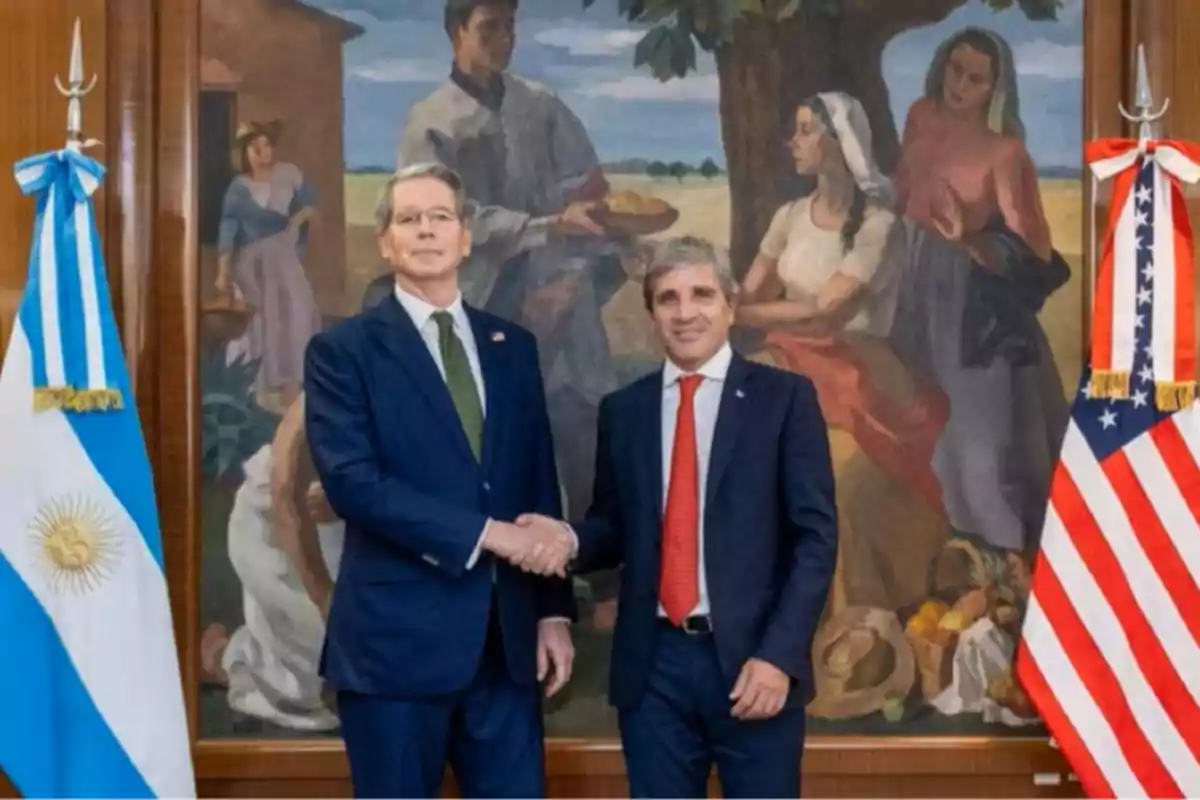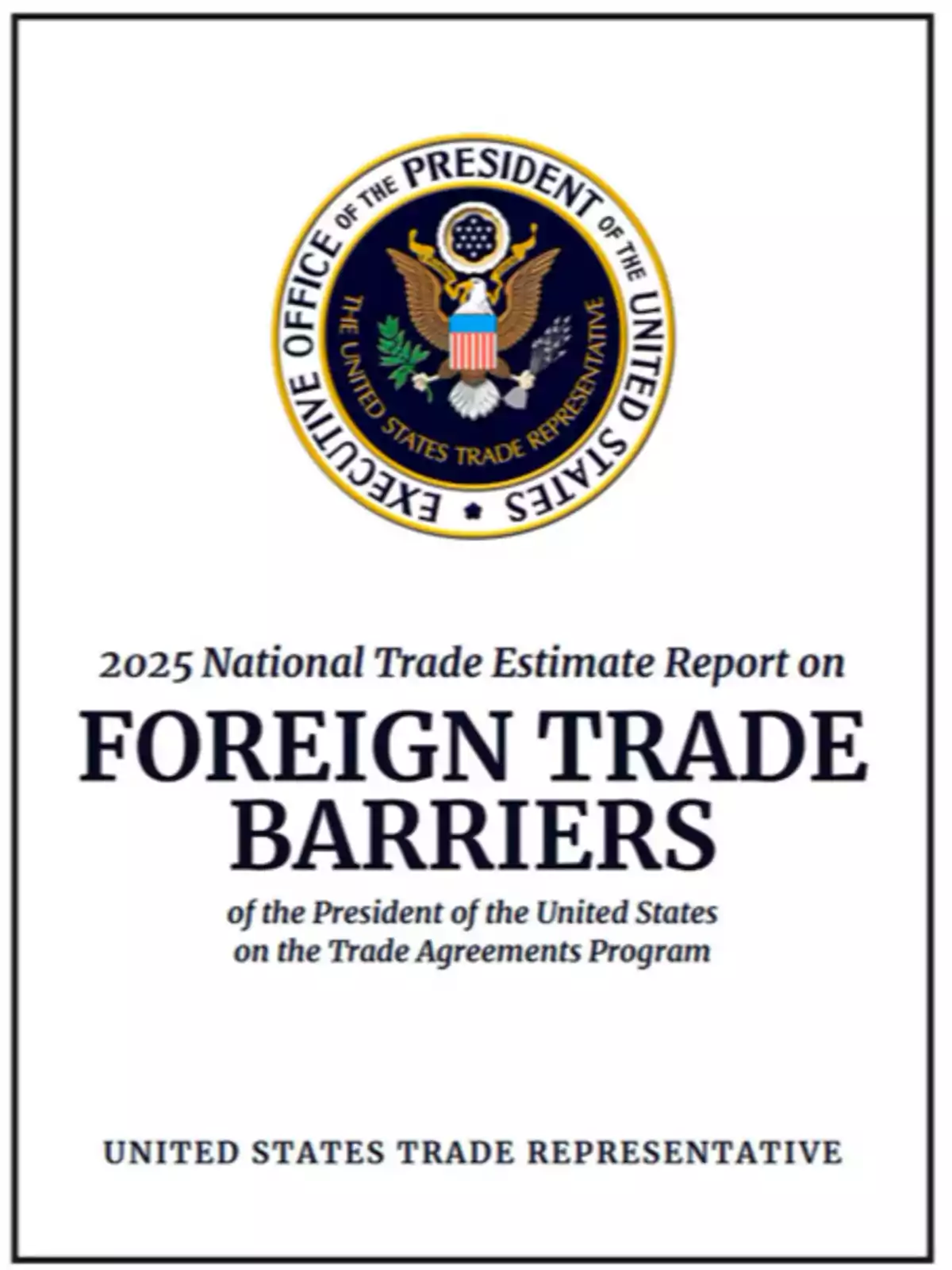
Caputo travels to Washington to consolidate Argentina's economic alliance with the US
Alongside Scott Bessent, the U.S. Treasury Secretary, 'Toto' Caputo will analyze the international board
Argentina takes another firm step in its strategy for international economic insertion, this time with the Minister of Economy, Luis Caputo, who will meet tomorrow with Scott Bessent, Secretary of the Treasury of the United States. In a global scenario tense due to the trade war unleashed by Donald Trump—who demands reciprocal tariffs for all products entering his country—the meeting symbolizes much more than a bilateral agenda: it marks the consolidation of an ideological and economic alliance between the governments of Javier Milei and the Republican president.
Caputo will arrive at the financial heart of the U.S. government accompanied by a high-level delegation: Santiago Bausili, President of the Central Bank; Pablo Quirno, Secretary of Finance; José Luis Daza, Secretary of Economic Policy; and Vladimir Werning, Vice President of the Central Bank. The meeting not only aims to discuss the global outlook but also to strengthen a strategic cooperation that already has strong political support from Washington.
In recent days, Scott Bessent has become an enthusiastic spokesperson for the success of the Argentine stabilization program, which has managed to reduce inflation, reactivate productive sectors, and channel public accounts. In recent statements, Bessent did not spare praise: "If Argentina needs it, in case of an external shock and if Milei stays the course, we would be willing to use the U.S. Exchange Stabilization Fund (ESF)," he stated.
"Argentina is a good example. I was in Argentina earlier this month to demonstrate U.S. support for the IMF's efforts to help the country financially restructure. Argentina deserves IMF support because it is making real progress in meeting financial parameters," he added.
He concluded: "The reason for my presence today is that it is a key day. Milei's government has implemented three adjustments, and this marks the beginning of the third: fiscal, monetary, and exchange rate."
The topics to be discussed at the meeting are several and of high impact: the progress of reciprocal tariffs, the activation of the Exchange Stabilization Fund (ESF), and the expansion of the bilateral TIFA agreement, in effect since 2016, which could include new strategic goods and services for both countries.

Additionally, the agenda will address the questions that still persist in the annual report of the United States Trade Representative (USTR), where Argentina appears on page 17 of an extensive 394-page dossier. It lists tariff asymmetries, regulatory barriers, and above all, conflicts related to intellectual property, with explicit mentions of the misuse of patents in key sectors such as pharmaceuticals and agrochemicals.
The report details:
.Restrictions on patentable subject matter.
.Insufficient protection against unauthorized disclosure of sensitive data.
.Excessive delays in patent approval.
.Presence of markets like La Salada and Once on the global blacklist for piracy and counterfeiting.
.Structural failures in the enforcement of intellectual property rights.
.Exchange barriers affecting importers and service providers.
These points, recognized by the Argentine government, have already begun to be corrected under the new pro-market orientation of the administration, which seeks to fully integrate into the international liberal order and break with decades of interventionist regulations.

In this context, the United States cautiously observes the swap agreement with China—extended until 2026—which it considers an obstacle to the full strategic integration between Buenos Aires and Washington. Bausili's presence in the delegation is key: the head of the Central Bank is responsible for managing this delicate transition, while the possibility of replacing the USD 5 billion from China with U.S. financing is analyzed.
In Bessent's words, "the Treasury Department could provide the necessary funds to replace the swap with China," in what would be a geopolitical move of great magnitude, aligned with the strategic priorities of the White House.
More posts: